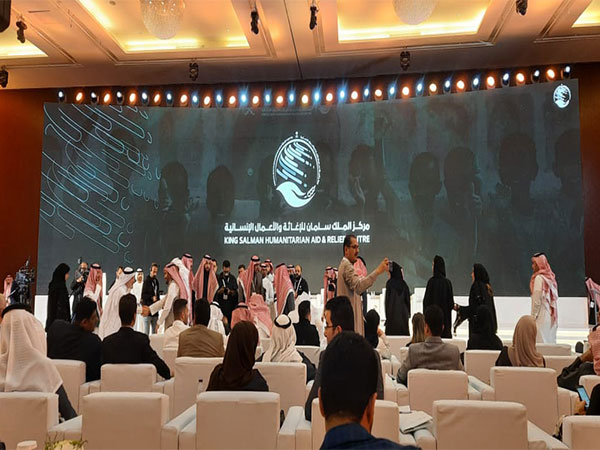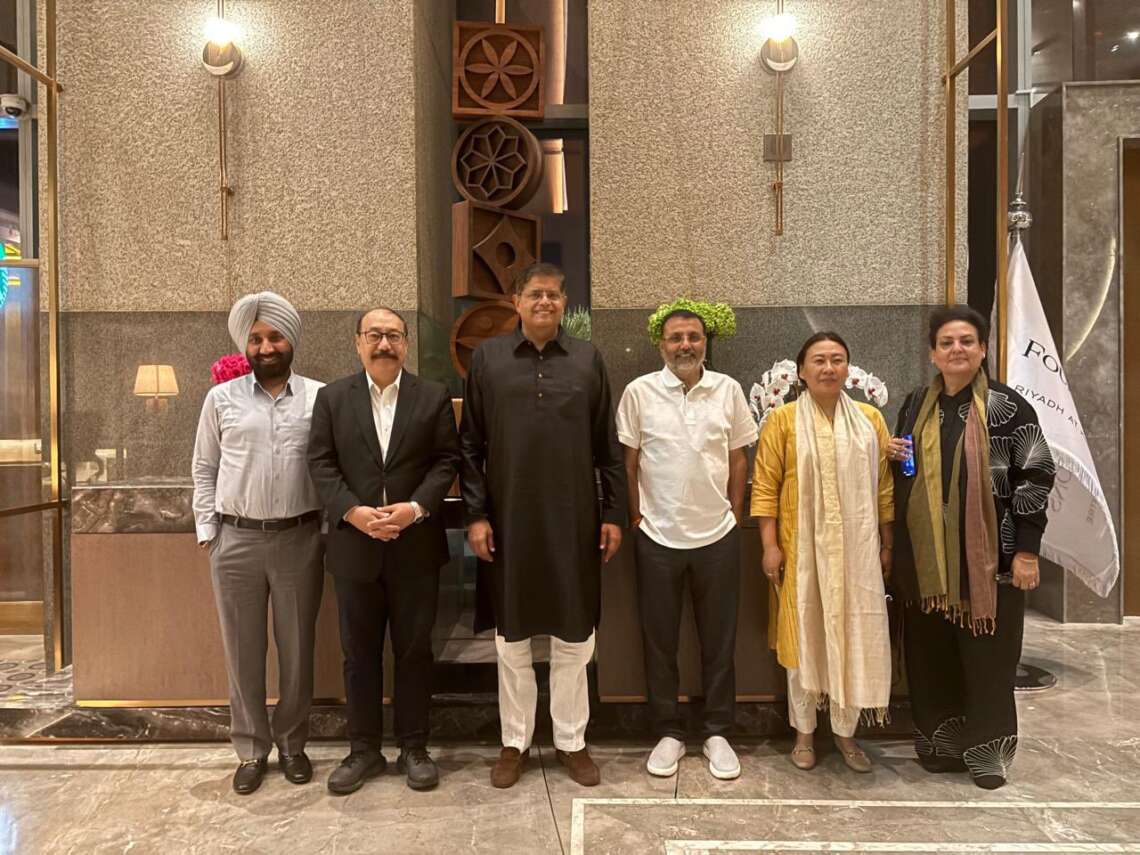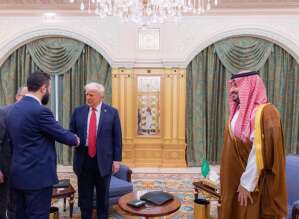The forum issued four point recommendations based on the major themes discussed in the event to further collective efforts in the areas that include Partnership …writes Rajnish Singh
Started under the patronage of King Salman bin Abulaziz, the two-day Riyadh International Humanitarian Forum (RIHF) specifically focussed on global data collection, associative realisation and analysis for humanitarian action and sustainable development.
Besides, the 3rd RIHF is being run here in the capital city of Saudi Arabia simultaneously with the 2nd edition of the Saudi Media Forum focussed on the role of research in achieving the goals of humanitarian action and sustainable development and achieving the goals of sustainable development through associative realization. Proactive action, local resilience and the impact of the phenomenon of apathy from the crisis on humanitarian work were also among the issues of the Riyadh International Humanitarian Forum which began on Monday.
Data collection and analysis to support humanitarian action and declaration of the recommendations linked to humanitarian assistance were the key pointers in the concluding session that involved discussions on humanitarian crisis issues like the latest catastrophic earthquake that struck Turkey and Syria, killing tens of thousands and rendering millions homeless.
Organised at Crown Plaza (RDC) City Digital, the RIHF witnessed the participation of Prince Faisal Farhan, Prince Faisal bin Bandar, and Dr Abdullah Al-Rabeeah.
The forum issued four point recommendations based on the major themes discussed in the event to further collective efforts in the areas that include Partnership (Evolving Humanitarian Needs and Responses), Assessment (Data Collection and Analysis to Support Humanitarian Work), Localization (Anticipatory Action: Strengthening the Resilience of Local Communities), and Nexus (Achieving SDGs through Humanitarian, Development and Peace Nexus.
Under Partnership (Evolving Humanitarian Needs and Responses), promoting open, transparent, and effective partnerships by sharing information, accurately assessing the needs of affected populations and defining appropriate humanitarian interventions to anticipate better, prioritize, prepare, and prepare and respond to evolving humanitarian requirements.
The forum recommended adopting a results-oriented approach to ensure the efficiency of implementation and maximize the impact of humanitarian interventions.
Under Assessment (Data Collection and Analysis to Support Humanitarian Work), it is suggested to enhance the capacity of humanitarian actors to collect, analyze and disseminate data to address humanitarian needs and advocate for informed decision-making on humanitarian interventions in a timely manner.
It is also recommended to assess humanitarian needs and monitor interventions that result in a meaningful impact on affected populations by using innovative technologies, researched and evidence-based approaches, data collection mechanisms and big-data analytics.
Recommendations for Localization (Anticipatory Action: Strengthening the Resilience of Local Communities) focussed on building the capacity of local actors to better respond to crises by strengthening the adoption of a people-centred approach in identifying needs, increasing access to innovative tools, and improving preparedness for response mechanisms.
Establishing effective, structured, systematic communication and cooperation channels at the local level in conflict and disaster-prone areas to enhance performance and accelerate response was also the key area of recommendations in the forum.
It is also stressed on the need to accelerate localization to strengthen community gains through proactive action to provide better outcomes to protect and restore lives and livelihoods.
Under Nexus (Achieving SDGs through Humanitarian, Development and Peace Nexus), it is asked to promote complementarity between humanitarian, development, and peace actors and approaches to strengthen joint programming and effective coordination.
Operationalizing the nexus approach based on lessons learned and best practices and developing practice-based guidance for wider dissemination and replicability were also emphasised in the forum which in the end recommended designing interventions across sectors for vulnerable communities in fragile contexts to strengthen resilience and adaptation.
The event was organised by the Ministry of Media here in celebration of five-day events that included activities of the Saudi Media Forum, the Riyadh International Humanitarian Forum, and the founding day of Saudi Arabia.
King Salman bin Abdulaziz Al Saud, the Custodian of the Two Holy Mosques, issued a Royal Decree to commemorate the founding day annually on February 22nd, which represents the Kingdom of Saudi Arabia’s deep historical, civilizational, and cultural roots when Imam Muhammad bin Saud established the first Saudi state in 1139 AH / 1727 CE.
It is a national occasion to commemorate the founding of the Saudi State by Imam Muhammad bin Saud started three centuries ago, as the Imam established a political entity that achieved unity, stability, and prosperity. On that day, Diriyah became the capital of the first Saudi State.
The founding day commemorates the three centuries of the existence of the Saudi State, highlighting its historical and civilizational depth, celebrating its diverse cultural heritage, and expressing devotion to the imams, kings, and citizens who serve the nation.
The two-day 2nd edition of the Saudi Media Forum, which also began in the capital Riyadh on Monday, also witnessed the participation of over 1,500 media professionals and industry leaders from Arab and foreign countries joining to discuss the challenges and opportunities in the media industry. (ANI)













